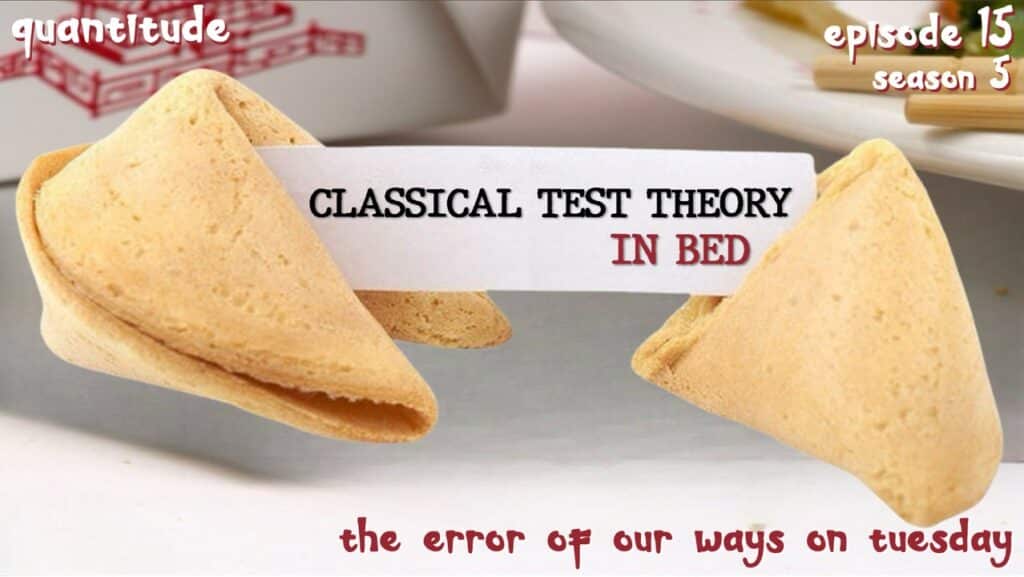In this week’s episode Greg and Patrick take a walk down memory lane to rediscover classical test theory, although they revisit this through the lens of modern latent variable models. They describe how these classical methods are actually highly restricted latent measurement models and they explore how these restrictions can be relaxed and even tested. Along the way they also discuss weird dates, free Tupperware, yellow fatty beans, advice cookies, in bed, scalloped tiles, scales at NASA, important footnotes, working in your garden, being buck naked, Dark Side of the Moon, squarshing, deserving variance, and when the cops show up.
Related Episodes
- S2E21: Yes, Virginia…There ARE Latent Variables
- S1E22: Factor Analysis: The Good, The Bad, & The Ugly
- S1E13: How Do I Get Scale Scores? Weight, Weight… Don’t Tell Me!
- S1E12: Measurement (Non)Invariance: Can We Ever Fail to Not Incorrectly Reject It?
- S1E09: Grumpy Old Man & Village Idiot Argue About Reliability
Suggested Readings
Algina, J., & Penfield, R. D. (2009). Classical test theory. The Sage Handbook of Quantitative Methods in Psychology, 93-122.
Cronbach, L. J. (1951). Coefficient alpha and the internal structure of tests. Psychometrika, 16, 297-334.
Cronbach, L. J., & Shavelson, R. J. (2004). My current thoughts on coefficient alpha and successor procedures. Educational and Psychological Measurement, 64, 391–418.
DeVellis, R. F. (2006). Classical test theory. Medical Care, S50-S59.
Hancock, G. R., & An, J. (2018). Framing and improving scale reliability assessment using structural equation models. Educational Measurement: Issues and Practice, 37, 73-74.
Hancock, G. R., & Mueller, R. O. (2001). Rethinking construct reliability within latent variable systems. In R. Cudeck, S. du Toit, & D. Sörbom (Eds.), Structural equation modeling: Present and future—A festschrift in honor of Karl Jöreskog (pp. 195–216). Lincolnwood, IL: Scientific Software International.
Hancock, G. R., & Mueller, R. O. (2011). The reliability paradox in assessing structural relations within covariance structure models. Educational and Psychological Measurement, 71, 306–324.
McNeish, D. (2018). Thanks coefficient alpha, we’ll take it from here. Psychological Methods, 23, 412.
Raykov, T., & Marcoulides, G. A. (2019). Thanks coefficient alpha, we still need you!. Educational and Psychological Measurement, 79, 200-210.
Schmitt, N. (1996). Uses and abuses of coefficient alpha. Psychological Assessment, 8, 350.
Traub, R. E. (1997). Classical test theory in historical perspective. Educational Measurement, 16, 8-13.

